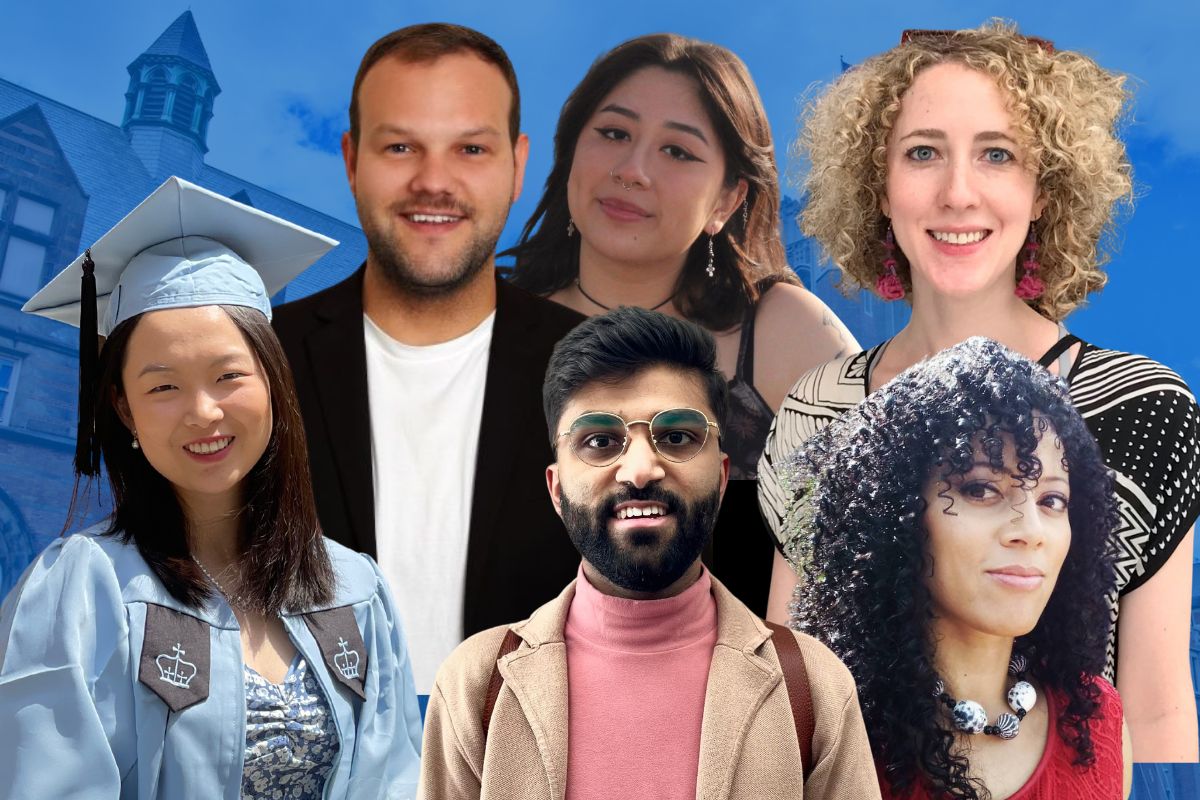Enacting true change through research and practice is a core part of what ties Teachers College graduates together. As education scholars prepare for Convocation on May 14 and 15, they will embark on the next step of their lives, from continuing in higher education to making a difference through research or in the classroom. We sat down with just six of TC’s impressive education graduates to learn about their motivations, how they impact their communities and what’s next.
Meet Cam Arnzen (Ph.D. ’24, Politics and Education)
Hometown: New Plymouth, Idaho
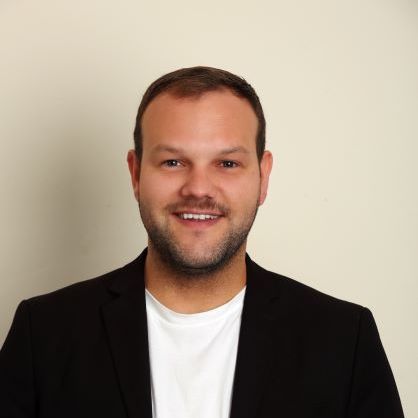
How He Makes an Impact: A recipient of the Carole Sleeper EPSA Endowed Scholarship as well as the Weinberg Fellowship and David T. Kearns Fellowship, Arnzen is committed to showcasing how “we need democracy and we need politics to shape better schools and better opportunity for everyone,” with a particular interest in rural communities like the one he grew up in. While at TC, Arnzen held leadership roles on the Student Senate, Columbia’s Ph.D. Council and the Rural Education and Healthcare Coalition. Pursuing a career in academia, his passion to “help students find out what they're interested in and make their own paths” is at the heart of Arnzen’s work.
What Matters: Exploring how education influences political engagement and understanding, especially in communities that are often overlooked in policy discussions. For Arnzen this work is “essential for our time right now … with everything going on in American politics, but it also has a lot of implications in terms of how we structure our institutions.”
What’s Next: Arnzen will continue to explore the intersection of policy, politics and schooling as a post-doctoral research associate at Brown University.
Meet Jacqueline Cofield (Ed.D. ’24, Curriculum and Teaching)
Hometown: Rochester, New York
How She Makes an Impact: Cofield’s scholarship focuses on transdisciplinary, multimodal, and culturally-relevant approaches to curriculum and curriculum research. She is especially interested in creating learning experiences that center joy and connection while “bridging the domains of Black studies, art history, and curriculum studies to foster a more inclusive and expansive understanding of cultural narratives and identities,” says Cofield, a recipient of the Dr. Anne R. Gayles-Felton and Dorothy L. Dorman Endowed Scholarships as well as a TC Doctoral Fellowship.
Through her role as project manager for Columbia’s Afro-Francospheres working group — formed through a partnership between the African American and African Diaspora Studies department (AAADS) and the Society of Fellows in the Humanities — Cofield has helped broaden the field of Black studies. Working with Dr. A. Véronique Charles, Cofield was integral in the development of a core AAADS course that emphasizes the diverse narratives within the global African diaspora. She also produced a panel in Paris based on her dissertation research which fostered critical discussion on the importance of Black aesthetics, outside “white-Eurocentric notions of beauty.”
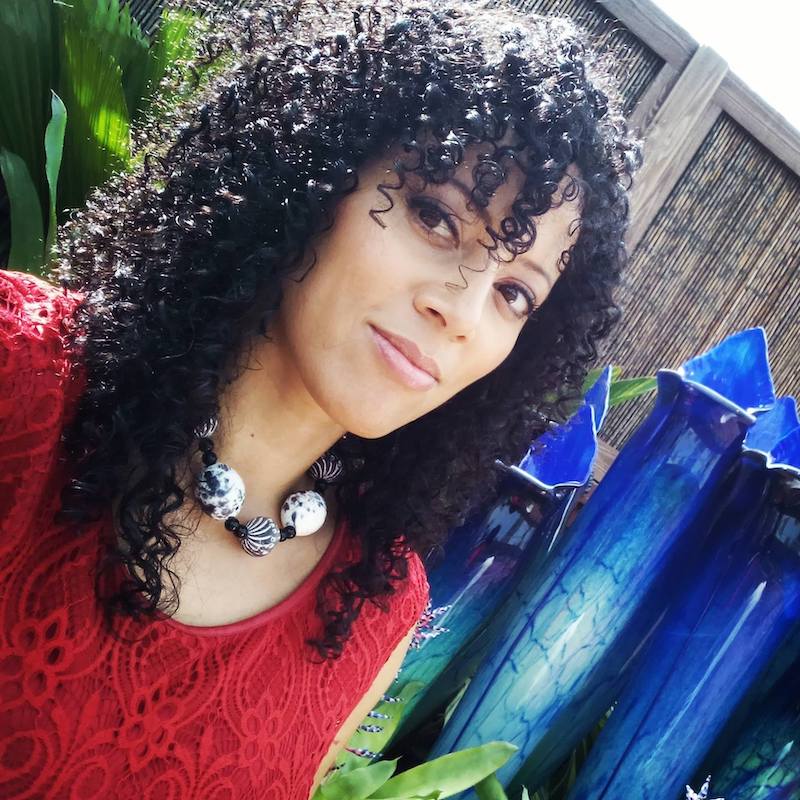
What Matters: Striving for a safer, more inclusive and loving world, especially for children. Her perspective is informed by extensive international travel experience, where Cofield made deep connections with people and places around the world. To achieve her goal of bridging divisions among people through learning and understanding, Cofield applies a multimodal approach to explore diverse forms of artistic expression. “If I can play a part in fostering understanding and unity through my work, I will consider it a profound achievement,” she says.
What’s Next: Cofield is pursuing opportunities related to her academic and social justice interests. She first plans to celebrate graduation by traveling with her six-year-old daughter, though she’ll also be working on a documentary about Black artists abroad and releasing a podcast in partnership with Columbia University Libraries, Beyond Beauty, where Cofield interviews women artists from the diasporic Global South.
Meet Amanda Earl (Ph.D. ’24, International and Comparative Education)
Hometown: Ardmore, Pennsylvania
How She Makes an Impact: Earl’s scholarship is rooted in her background and experiences as a teacher. “My philosophy is that we need to listen to students and their families, as they know best what they need in their classrooms,” she says. Working under Professor Regina Cortina, Earl’s dissertation explored how curriculum developed by a university in Veracruz, Mexico, promoted Indigenous languages and intergenerational learning among rural students and their communities.
Another formative experience at TC was working as a graduate editorial assistant for the Teachers College Record, where Earl helped diversify the kinds of research published by the journal. “English-language journals are dominated by voices of the global North. So the fact that the Record is prioritizing the expertise of international scholars is crucial,” says Earl. She’s also applying the knowledge gained at TC to her role on the board of directors for Dreamline, a nonprofit empowering students to take collective action toward their dreams.
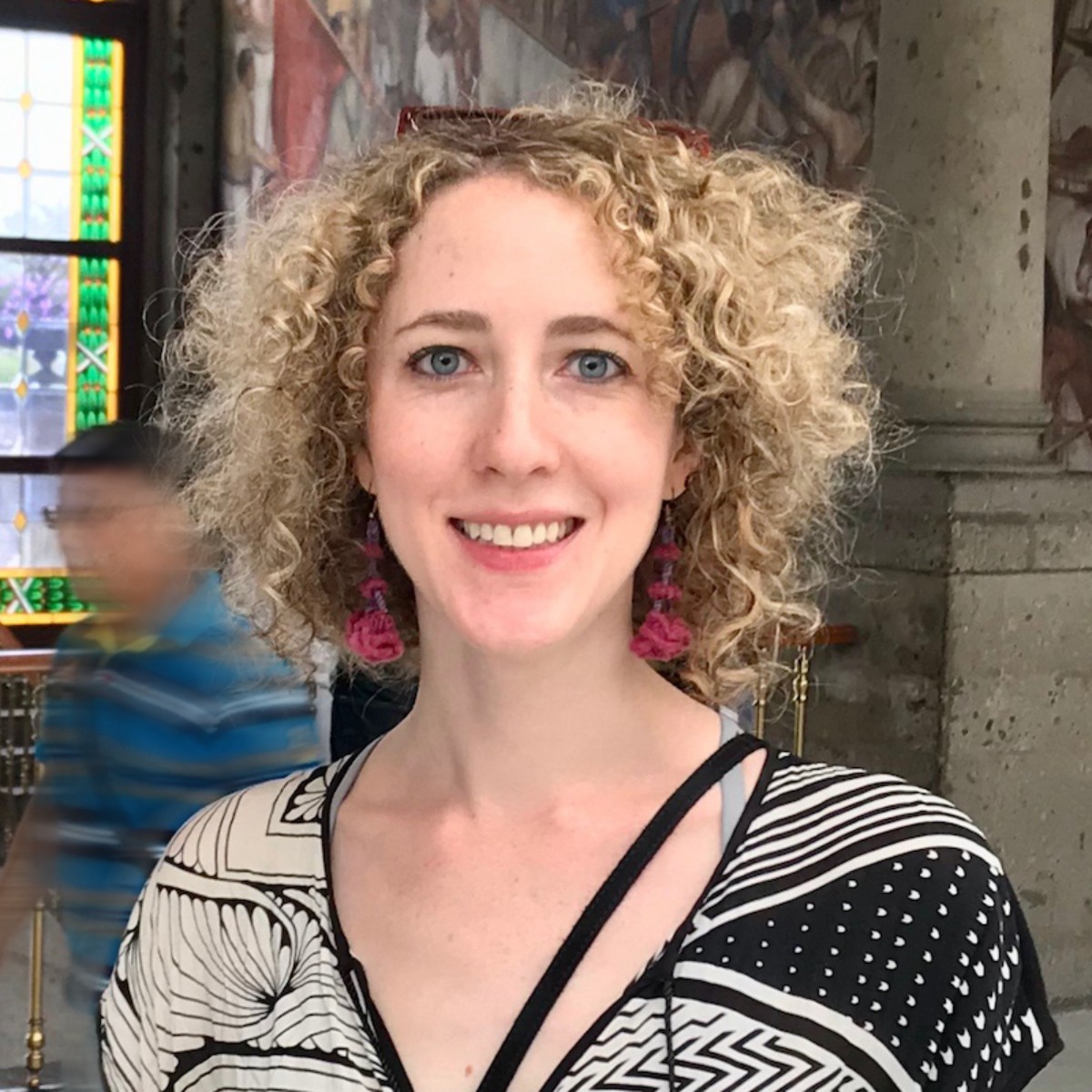
What Matters: Diversifying perspectives and learning constantly. Growing up in Philadelphia and seeing the difference between her educational options and those of her family in West Virginia was a foundational experience for Earl. “From an early age, I was cognizant of how geography shapes not only educational trajectories, but also career and life trajectory,” she says. Her experience working with a Brooklyn-based college access program led Earl to graduate school in order to address the homogeneity of thought in higher education. Her work is “rooted in the idea that educational equity is dependent not on making individuals adapt to the academic institution, but adapting institutions to the needs and aspirations of the students and communities they serve.”
What’s Next: Earl plans to pursue a career in teaching and research and she continues to work as an editorial assistant at the Record.
Meet Yuruo (Lisa) Lei (Ed.M. ’24, Communication, Media, and Learning Technologies Design)
Hometown: Guiyang, Guizhou, China
How She Makes an Impact: Leveraging technology to promote educational equity for students growing up in rural regions. “I’m hoping that through advanced technology, children like me who grew up in Guiyang can also have the same quality of education and learning opportunities,” says Lei, who worked closely with numerous faculty during her time at TC. She was inspired to do this work when she was studying abroad in California during high school and met Chinese students from large cities who had access to far more resources than rural students. “That experience really shocked me in a way,” says Lei, “knowing that even though you're both Chinese, there's not much similarity in terms of education equity resource distribution.”
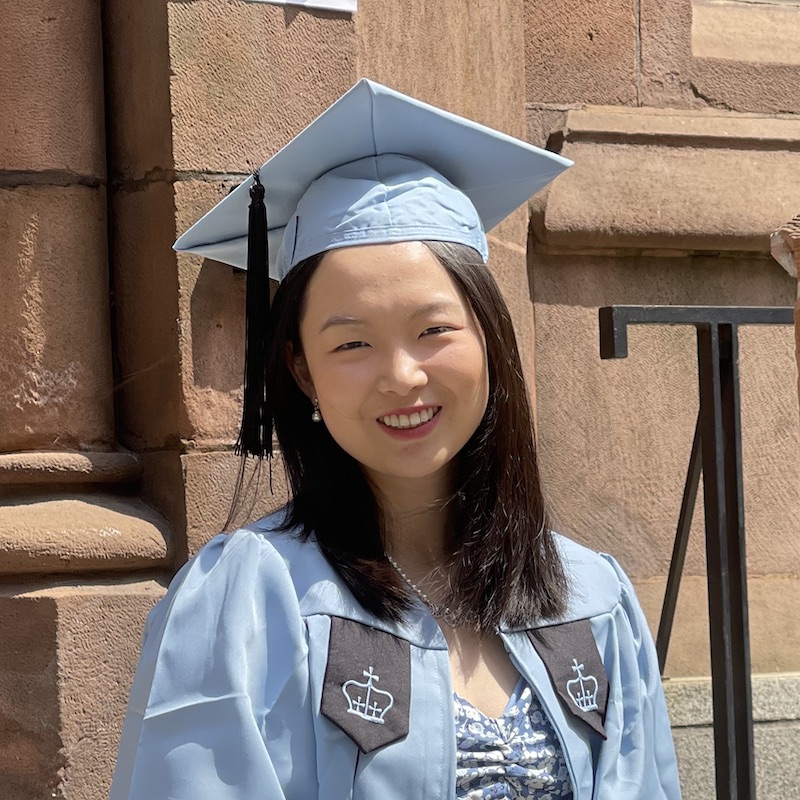
What Matters: Giving voice to unheard communities. In addition to ensuring educational equity through technology, Lei is interested in showcasing the individual diversity and complexity amongst groups that are often generalized. She’s especially proud of a paper she co-wrote with TC’s Ioana Literat and six of her peers that explores how Chinese youth engage with sensitive subjects, like politics, on Douyin, the Chinese equivalent of TikTok. “In China there's no formal media literacy education, but still the youth figured it out on their own and they are actively practicing it [media literacy] on a daily basis, there's just nobody to hear their voices. Having them share their stories and practices on social media with me, that's surely something I feel grateful for,” says Lei. The paper was accepted at the International Communication Association conference and Lei is eager to share the findings with a larger audience.
What’s Next: Lei will be joining Vanderbilt University as an instructional designer.
Meet Raaghav Pandya (Ph.D. ’24, Science Education)
Hometown: Old Bridge, New Jersey
How He Makes an Impact: Believing that effective scholarship requires engagement with grassroots movements, Pandya’s goal is to implement true change through his work. He is especially proud of his research that explores the use of “contemplative practices” — inspired by philosophies like yoga, Vedanta, and Buddhism — in K-12 schools as well as his research with TC’s Chris Emdin incorporating hip-hop, creativity, and spirituality into science education . “Doing qualitative research and transforming that into teaching has informed me as a researcher and a scholar, where now I implement these paradigms around critical inquiry and empathy with learners and other educators,” says Pandya.
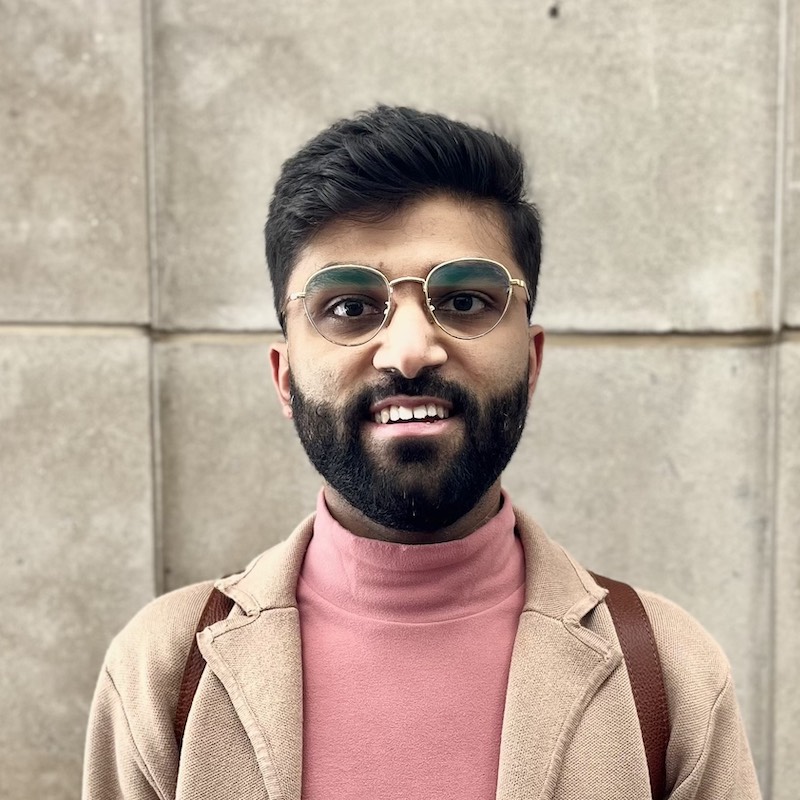
What Matters: Continuing the work of his ancestors “in the most authentic yet radically transformative way for our modern era.” He credits this calling to his professors, teachers, and revolutionary, 20th century educationalists and reformers like Pandurang Shastri Athavale. He’s particularly inspired by his grandmother, who was one of the first women in post-colonial India to receive a Ph.D. in education. Spending time with her when he was a child motivated Pandya to pursue higher education and make a positive impact on young learners.
What’s Next: In addition to lecturing at TC, Pandya will be working as a resident scholar at STEAM, DREAM & IdeaLab also called the Schupf IdeaLab. As a resident scholar, Pandya will be designing research, workshops, and curriculum as well as crafting interdisciplinary STEM experiences that emphasize the importance of creativity, mindfulness, a connection between the self and the world, and nature in classrooms.
Meet Sofia Rosario (M.A. ’24, English Education)
Hometown: New Rochelle, New York
How She Makes an Impact: As a first-generation American and a child of new immigrants, Rosario often felt like an outsider and unrepresented in school curriculum. The desire for her identity to be seen and recognized in schools fueled her to become a teacher and make a positive impact on students like herself. Connecting with students of color, especially first-generation students, is central to Rosario’s scholarship. “I'm inspired by finding those students and helping them reconcile with the American identity,” she says.
During her first year at TC, Rosario interned at a Harlem high school as a member of the Teacher Opportunity Corps (TOC), a program designed to increase the number of NYC teachers from underrepresented groups. Her time working at the school gave Rosario teaching experience as well as influenced her scholarship. “I loved my time there, it was a place for me to get my footing as a teacher but now that I think back on it, it brought my attention to how and why our communities need a lot more resources than others,” she says.
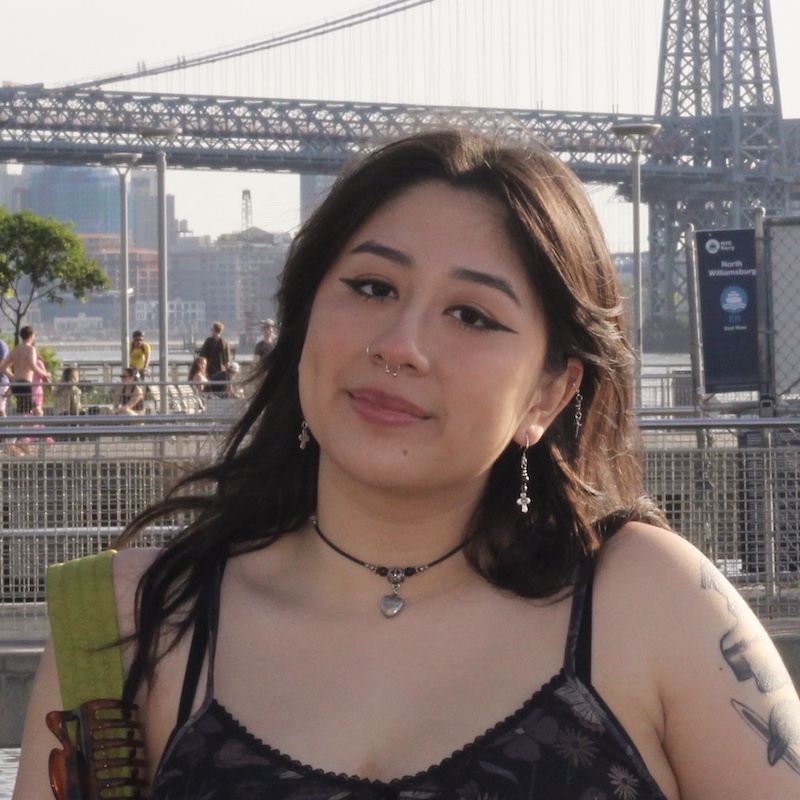
What Matters: Recognizing the value of diverse voices and uplifting her community. For Rosario, building connections with her students and fostering a community at schools is the most important aspect of her work. Throughout her tenure at TC, Rosario’s focus expanded to include “accepting the American identity and [giving students] the confidence to navigate society,” she says.
What’s Next: Teaching in classrooms wherever she can make a positive difference.
